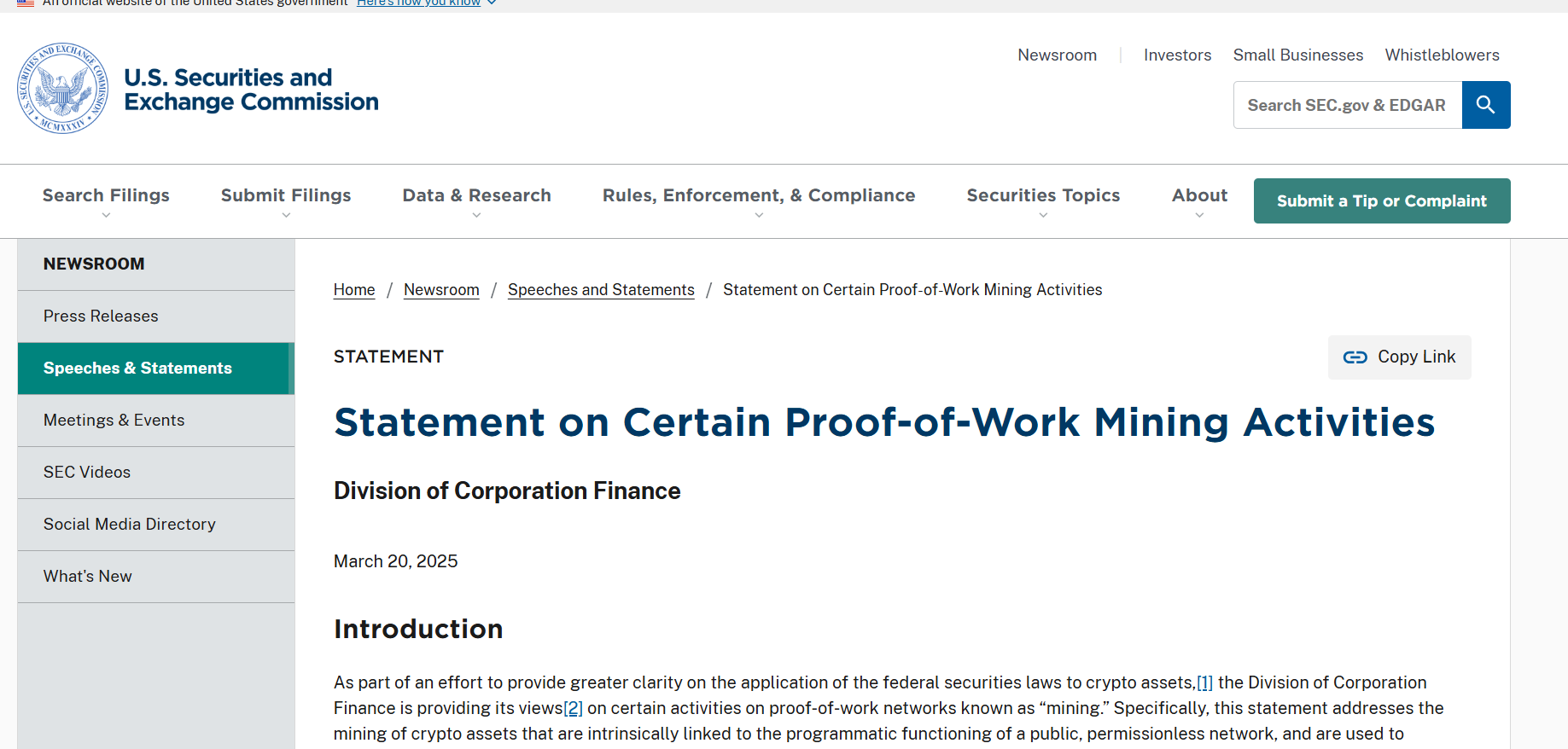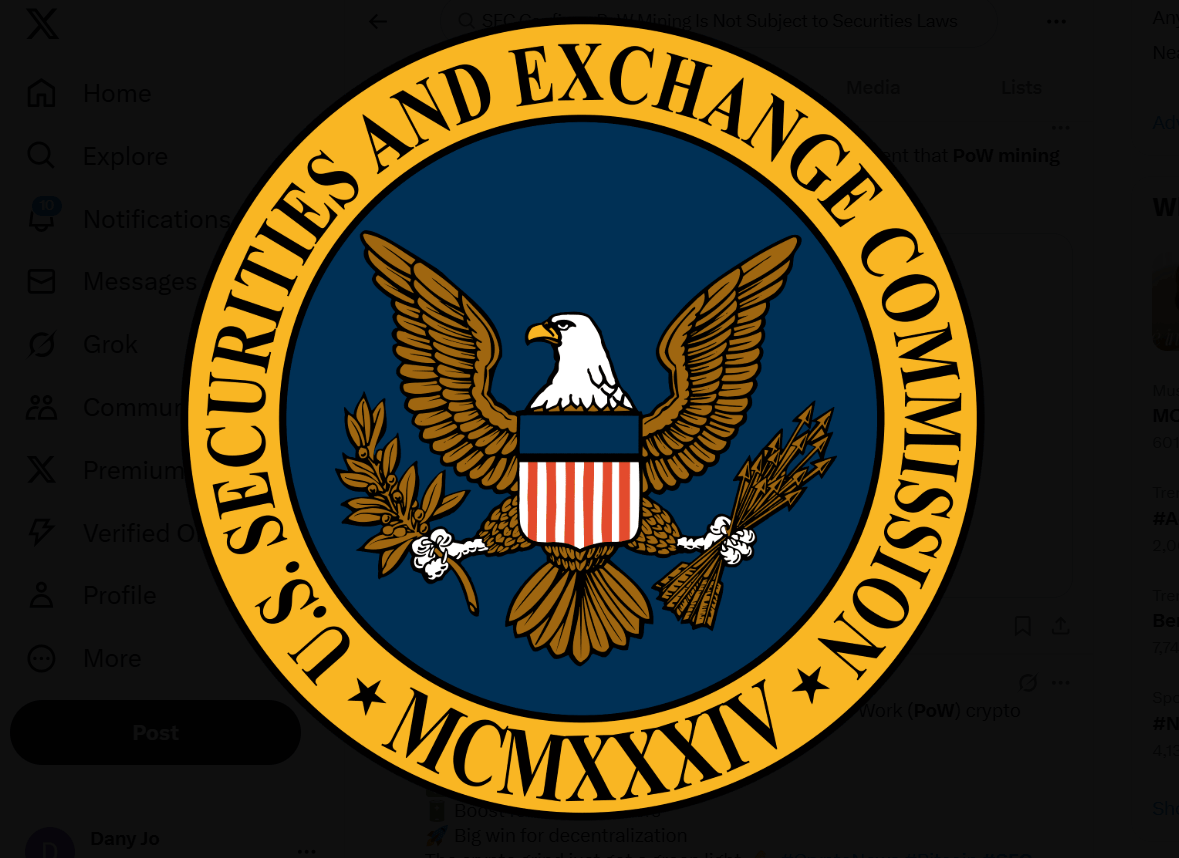- The SEC has reaffirmed that proof-of-work PoW mining, including both solo and pool mining, does not fall under securities regulations.
- Recent regulatory actions, including the dismissal of lawsuits against Coinbase and Kraken, suggest a shift in the SEC’s enforcement strategy.
- The SEC’s withdrawal of its appeal in the Ripple case indicates a move toward a more structured and transparent regulatory framework for the crypto industry.
The U.S. Securities and Exchange Commission (SEC) has reconfirmed that proof-of-work PoW mining isn’t subject to securities regulations.
In a statement recently made, the SEC Division of Corporation Finance explained that both solo mining and pool mining are not securities-related activities. The statement puts an end to uncertainty about whether or not mining operations could be subject to regulatory prohibitions.

How PoW Mining Works
Bitcoin miners use their own computer power to verify transactions and get rewarded, and do not have to depend on others for making a profit.
Even when miners join together in a pool, the job of pool operators does not fit the requirement of the Howey Test, which decides whether an asset is a security. Therefore, PoW mining is not investment contracts or securities-based.
Bitcoin is the best-known PoW currency, though some other widely known PoW-based tokens are Dogecoin (DOGE), Litecoin (LTC), and Monero (XMR). In 2018, the SEC announced that Bitcoin and Ethereum are not securities.
Then, when Ethereum was converted into proof-of-stake format during December of 2020, this placed them in a place of uncertainty for their legal designation. SEC Chairman Gary Gensler has ever since sidestepped giving a direct answer of whether Ethereum now constitutes a security.
SEC’s Changing Approach to Crypto Regulation
This latest statement is just one piece of the SEC’s overall effort to get more focused on crypto regulation.
Meanwhile, the agency seems to be adjusting its enforcement strategy. In a surprising move, the SEC has dropped a number of lawsuits against prominent crypto firms, including Coinbase and Kraken. That implies regulators might be softening their approach to some parts of the crypto world.
The SEC also withdrew its appeal in the Ripple case, a lengthy court fight that had attracted a lot of attention. These are signs that the agency is shifting toward a more precise and formalized regulatory environment.
By asserting that PoW mining is not subject to securities laws, the SEC has given some measure of comfort to crypto stakeholders so that they can operate with increased confidence within the regulatory environment.
Also Read: Tron Moves Toward TRX ETF Potential While Expanding Into Solana



